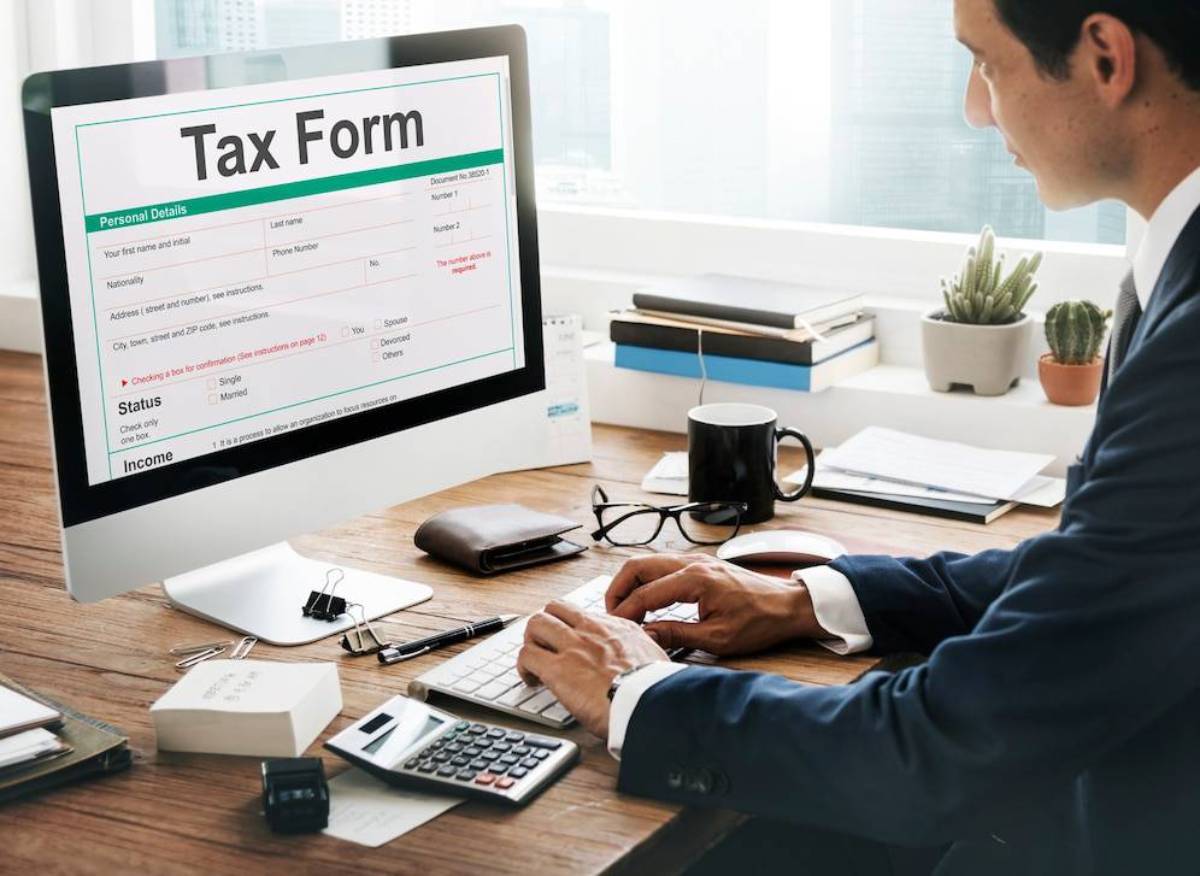
How to Legally Reduce Your Tax Bill and Save More Money
Navigating the UK tax system can be challenging. You can legally lower your tax bills with the right approach and tax-saving tips. This guide covers legal tax reduction strategies and offers practical ways to maximise tax deductions. Whether you’re an individual taxpayer, a small business owner, or a freelancer, these tips will help you save money legally and effectively.
Optimising your tax position helps you keep more of your income. It also allows you to invest in your future. Let’s explore strategies that can change how you plan for taxes. These tips ensure you make the most of available deductions and allowances.
Understanding the UK Tax System

How the UK Tax System Works
The UK tax system is structured to collect revenue from various sources, including income tax, corporation tax, and VAT. Each taxpayer is subject to different rules and allowances, depending on their circumstances.
- Income Tax: Levied on earnings, including salaries, dividends, and other income streams.
- Corporation Tax: Applicable to limited companies on their profits.
- Value-Added Tax (VAT): Charged on most goods and services.
Understanding the basics of how taxes are applied is the first step towards implementing effective legal tax reduction strategies.
Key Tax Allowances and Reliefs
Several allowances and reliefs are available to UK taxpayers, which can legally help reduce your tax bill. Familiarise yourself with these to take full advantage:
- Personal Allowance: The amount of income you can earn each year tax-free.
- Marriage Allowance: One partner can transfer a portion of their Personal Allowance to their spouse.
- Capital Gains Tax Allowance: An annual exemption on capital gains.
- Business Reliefs: Various reliefs for self-employed individuals and small businesses, including the Annual Investment Allowance (AIA).
These tools are fundamental to tax-saving tips that can help you maximise tax deductions.
Quick Guide: How to Save 50% of Your Income Without Sacrificing Lifestyle
- Track income and expenses to know your financial baseline
- Create a zero-based budget that prioritises saving
- Automate savings to make it effortless
- Embrace minimalism and cut non-essential spending
- Boost income through side hustles or skill upgrades
- Adopt frugal habits like cooking at home and using public transport
- Do monthly check-ins and adjust as needed
- Maintain balance—budget for fun and enjoy life meaningfully
Pro Tip
Start with a 30% savings goal, then gradually increase it as you cut costs and boost income. Building toward 50% over time makes the shift feel sustainable rather than extreme.
Important
Saving half your income isn’t just about cutting back—it’s about creating financial flexibility. That flexibility allows you to make bold moves like switching careers, starting a business, or retiring early—without financial fear.
Tax Saving Tips: Practical Approaches
1. Claim All Available Allowances
One of the simplest ways to reduce your tax bill is to ensure you claim every allowance and relief you’re entitled to. This involves:
- Personal Allowance: Ensure you take full advantage of your tax-free personal allowance.
- Marriage Allowance: If eligible, transfer a portion of your Personal Allowance to your spouse to reduce the overall tax burden.
- Employment Expenses: Claim work-related expenses, such as travel, uniforms, or professional subscriptions, if they are not reimbursed by your employer.
- Pension Contributions: Contributions to a pension scheme not only secure your future but can also reduce your taxable income.
Regularly reviewing your eligibility for these allowances is an essential tax-saving tip that can lead to significant savings.
2. Keep Detailed Records
Good record-keeping is critical for maximizing tax deductions. Maintain accurate records of all expenses, income, and relevant receipts. This documentation will be invaluable if you need to support your claims during an HMRC enquiry.
- Digital Record Keeping: Use accounting software or digital spreadsheets to track yearly expenses and income.
- Organise Receipts: Keep physical or digital copies of receipts for expenses you plan to claim.
- Track Mileage: Record your mileage and related expenses accurately if you use your vehicle for work.
These practices not only ensure compliance with HMRC guidelines but also serve as practical tax-saving tips.
3. Invest in Tax-Efficient Savings and Investments
Making the right investment choices can help you reduce your taxable income and grow your wealth simultaneously. Consider these options:
- ISAs (Individual Savings Accounts): Investments within ISAs grow tax-free, meaning you pay no income or capital gains tax on returns.
- Pension Contributions: Increasing your pension contributions can lower your taxable income while preparing you for retirement.
- Venture Capital Trusts (VCTs) and Enterprise Investment Schemes (EIS): These schemes offer generous tax reliefs for investing in smaller companies, though they come with higher risk.
Leveraging these legal tax reduction strategies can significantly maximise tax deductions while building your financial portfolio.
Legal Tax Reduction Strategies for Businesses

1. Claim Business Expenses
If you’re self-employed or run a small business, you can deduct a wide range of business expenses from your taxable income. Common deductible expenses include:
- Office Costs: Rent, utilities, and office supplies.
- Travel Expenses: Business travel, including mileage and public transport.
- Marketing and Advertising: Costs associated with promoting your business.
- Professional Fees: Accountancy, legal fees, and other professional services.
Accurately claiming these expenses is one of businesses’ most effective legal tax reduction strategies.
2. Take Advantage of Capital Allowances
Capital allowances allow businesses to deduct the cost of certain capital assets, such as equipment, machinery, and vehicles, from their taxable profits.
- Annual Investment Allowance (AIA): Provides 100% tax relief on qualifying capital expenditure up to a specified limit.
- Writing Down Allowance: For assets that exceed the AIA limit, you can still claim depreciation over time.
Utilising capital allowances effectively can dramatically maximise tax deductions for your business.
3. Consider Incorporation
For many business owners, incorporating their business can offer significant tax advantages. Incorporation may allow you to:
- Benefit from Corporation Tax Rates: Often lower than personal income tax rates.
- Access Tax-Efficient Benefits: Such as dividend tax planning and business expense deductions.
- Improve Credibility: A limited company structure can enhance your business’s reputation with clients and investors.
Discuss the benefits of incorporation with a professional advisor to determine if it’s a suitable legal tax reduction strategy for your circumstances.
Maximising Tax Deductions: Advanced Techniques
1. Review and Adjust Your Tax Position Annually
Tax laws are subject to change, and what worked last year might not be optimal this year. Regularly review your tax position and adjust your strategies accordingly.
- Annual Tax Planning: Meet with a tax advisor annually to review your allowances, expenses, and investments.
- Update Records: Ensure that all your financial records are up-to-date to take full advantage of any changes in tax law.
- Plan Major Purchases: Time major expenses or investments to align with your tax planning strategy.
An annual review is a proactive tax-saving tip to help you continuously maximise tax deductions.
2. Utilize Tax Loss Harvesting
For investors, tax loss harvesting is a strategy where you sell investments that have declined in value to offset capital gains elsewhere. This technique can reduce your overall tax liability.
- Offset Gains: Use losses to reduce taxable gains from other investments.
- Reinvest: Consider reinvesting in similar assets to maintain your portfolio’s composition while benefiting from the tax loss.
- Strategic Timing: Plan the sale of underperforming assets as part of your annual tax planning.
Tax loss harvesting is an advanced strategy that, when executed correctly, significantly contributes to legal tax reduction strategies.
3. Consider Charitable Donations
Donating to charity benefits the community and offers tax relief. Gift Aid allows charities to claim an extra 25% on donations, and higher-rate taxpayers can claim additional relief on their tax returns.
- Structured Giving: Make regular charitable donations part of your financial plan.
- Keep Records: Maintain documentation of all donations to support your tax relief claims.
- Combine with Other Strategies: Use charitable giving as a broader strategy to reduce your taxable income.
This approach supports good causes and functions as a valuable tax-saving tip.
Consulting a Professional: The Value of Expert Advice
Tax planning can be complex; even the best strategies require personalised advice. Engaging with a professional—whether it’s a tax advisor, accountant, or financial planner—can help ensure you are fully compliant with HMRC regulations while optimising your tax position.
- Expert Guidance: A professional can provide tailored advice that considers your unique financial situation.
- Keep Updated: Tax laws change frequently; an advisor informs you about the latest developments.
- Peace of Mind: Professional advice can reduce the stress of managing your tax affairs.
Investing in expert advice is one of the smartest legal tax reduction strategies you can employ to maximise tax deductions and save more money.
5 Frequently Asked Questions (FAQs)
Q1: Is it really possible to save 50% of your income without making six figures?
A: Yes! It depends more on lifestyle choices and budgeting than on income level. Many people with average incomes save 40–50% by living below their means and prioritising their financial goals.
Q2: What if I live in an expensive city—can I still save 50%?
A: It’s more challenging, but not impossible. Focus on shared housing, remote work opportunities, and frugal transportation choices to reduce core expenses.
Q3: Do I have to give up all luxuries to save 50%?
A: Not at all. You just need to spend intentionally. Budget for the things that truly matter and cut the rest. It’s about value-based spending, not deprivation.
Q4: Should I prioritise saving or investing with my 50%?
A: Ideally, both. Start by building an emergency fund, then allocate a portion toward retirement accounts or low-cost index funds to grow wealth over time.
Q5: How do I stay motivated when cutting spending?
A: Focus on your why—whether it’s early retirement, travel, or peace of mind. Track your progress, celebrate small wins, and follow others on the same journey for inspiration.
Pay Less, Save More: The Power of Tax Planning

Lowering your tax bill legally isn’t about evasion. It’s about smart planning. Use proven tax-saving tips and effective legal tax reduction strategies. Look for ways to maximise tax deductions. These steps can improve your finances and offer long-term security.
Whether you’re an individual taxpayer or a business owner, staying informed is key. Keep detailed records and regularly review your tax position. Embrace these strategies as part of your financial plan. Consider professional advice to tailor them to your needs.
Start using these tactics today to improve your tax planning. With careful planning and a proactive approach, you can lower your tax liabilities. Redirect those savings toward investments and growth to reach your financial goals.
Take charge of your tax planning. Use these methods consistently to make your money work for you. Smart tax planning is ongoing. Regular reviews and adjustments are key to your success. Here’s to a future of financial efficiency and prosperity!


